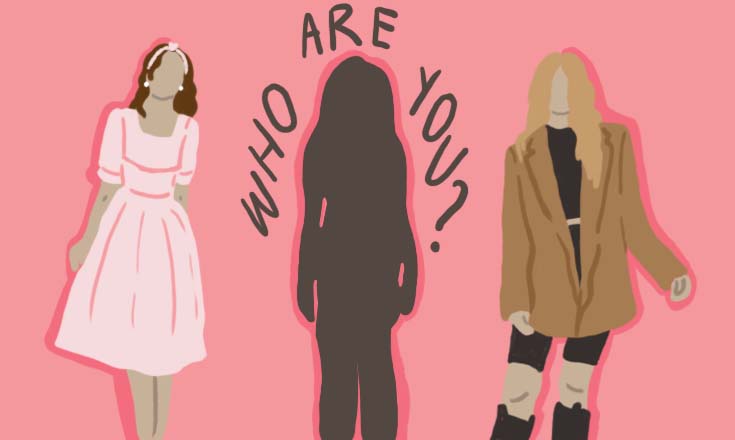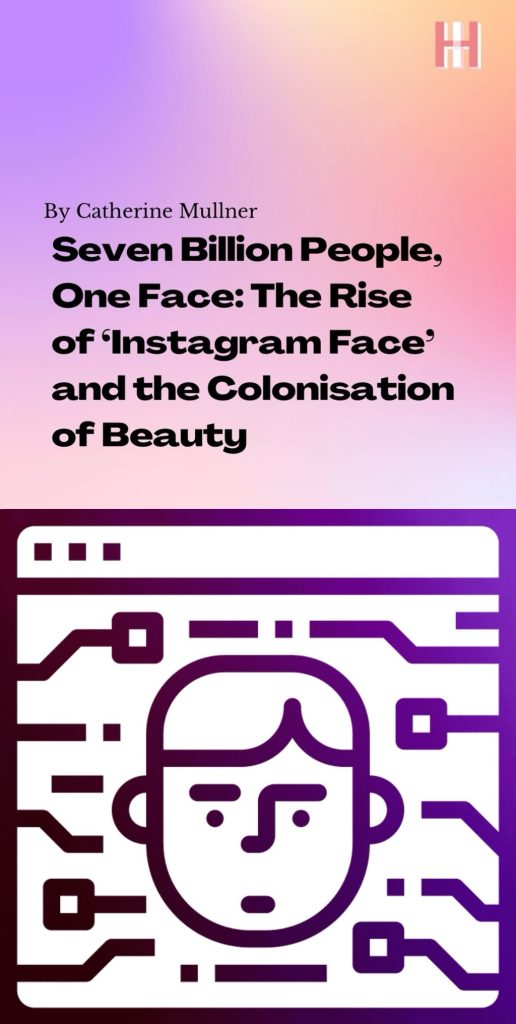Before discussing today’s topic, I think it is necessary to let everyone know the definitions related to it.
Algorithms are automated systems used by social media platforms to decide which content can show to users, they are typically based on their behaviours and preferences. These algorithms influence what people see and how they feel they should present themselves online (Baym& boyd, 2021).
The Powerful Role of Algorithms

In today’s digital world, algorithms play a powerful role in shaping personal identity. These algorithms maximize engagement by optimizing user content display, which not only affects the content we see and share, but also profoundly impacts our feelings about ourselves. As a result, many users have experienced “digital identity anxiety”, which struggling to maintain a perfect online image under pressure(Chen& Pan, 2022).
We expect more from technology and less from each other.
Turkle, S. (2011). Alone Together: Why We Expect More from Technology and Less from Each Other. Basic Books.
Visibility Pressure: The Source of Anxiety
One of the main factors causing this anxiety is the control effect of algorithms in deciding which content can be seen by more people. Research has shown that in order to attract a wider audience, users often feel pressured to post content that conform to algorithm preferences, such as beautiful photos or popular challenges (Baym& boyd, 2021). This “performance pressure” restricts true self-expression, forcing users to cater to platform demands in the competition for attention and recognition, thereby increasing anxiety (Zhao, Wang,& Lee, 2021).
A noteworthy case is the popular beauty YouTuber Tati Westbrook, who openly discussed the pressure and anxiety of trying to maintain an ideal image while dealing with online audience and the review of algorithm preferences. She notes that constantly keeping up with trends can lead to stress and fear. This fully shows how the visibility pressure of algorithms increases digital identity anxiety.
Fragmented Identities

A good example is that Instagram places great emphasis on beautiful images. This attention often puts pressure on users, forcing them to post seemingly perfect posts in order to maintain attention and exposure on the platform. This phenomenon is sometimes referred to as “Instagram Face” causing users to feel anxious in order to conform to their ideal aesthetic standards.

Another reason for this anxiety is the fragmentation of online identities. Many users adopt different role on platforms such as Instagram, TikTok, and Facebook, adjusting each profile according to the different cultural and social expectations on these platforms (Turkle, 2020). This constant role transition may lead to “language environment”. It is difficult for users to track these different selves, so when they struggle with these fragmented identities, it may bring them confusion and pressure (Chen& Pan, 2022).

In addition, trends such as “Insta-worthy” encourage users to only show the best aspects of their lives. This selective display can create a sense of inferiority in others, as they may feel that their lives are not as interesting as others. Therefore, in order to maintain an ideal online image, users are under great emotional pressure. In this visual focused online world, people work hard to manage how they present themselves.
Mastering the digital world

In conclusion, algorithms have introduced many new challenges to how we build our digital identities. From controlling visibility to creating fragmented identities, algorithms have created a complex and high-pressure online environment. On social media, we keep adjusting to the preferences of these algorithms, presenting an idealized version of ourselves in order to gain attention. In this way, we may slowly lose ourselves in the chase for a “perfect” online image.
I think this anxiety driven by algorithms shows how technology affects our minds and social lives in a deep way. Social media has given us new chances for connection and self-expression, but under the influence of algorithms, it has also increased our worries about self-image and comparison with others. As users, we may not be able to fully escape the control of algorithms, but we can become more aware of their impact. By doing this, we can try to find a better balance in how we express ourselves online.
In this fast-changing digital age, it is important to stay aware and think clearly. We should learn to tell the difference between our real needs and what the algorithms push us to want. In the future, if social media platforms focus more on users’ mental health and allow for more honest and diverse self-expression, it might help reduce the negative effects of digital identity anxiety.
References
·Baym, N. K., & boyd, d. (2021). Socially Mediated Identity in the Age of Algorithms. Journal of Communication, 71(2), 179-196.
·Chen, J., & Pan, X. (2022). Performative Self-Presentation and Digital Identity: A Study of Instagram Users. Social Media and Society, 8(1), 123-137.
·Fuchs, C. (2023). Digital Demands: Algorithms, Data Capitalism, and Identity Construction. Critical Sociology, 49(4), 512-529.
·Gibbs, M., & Tucker, M. (2023). Algorithmic Influences on Digital Identity Construction. Journal of Digital Culture, 15(2), 147-162.
·Turkle, S. (2020). Digital Doppelgängers: Fragmented Identity in Social Media Spaces. Technology & Society, 28(3), 233-248.
·Zhao, S., Wang, M., & Lee, S. (2021). Fragmentation and Identity Construction on Multiplatform Social Media. Social Media Studies, 14(2), 95-110.


Hi Qianru! Overall, it is an amazing topic about how the emerging and rapidly changing new technologies in the digital world cause identity anxiety, and it greatly matches the topic on the construction of self and identity that we have learnt.
Because of the emergence of algorithms, people will unconsciously think of constructing a well-behaved identity or a performance to match the algorithm in order to get the spotlight; it is a severe issue worth pondering. Are we the authentic self in the digital world? Are we really happy and built our self-esteem through constructing different identities in the digital world?
Erving Goffman’s “Front Stage” and “Back Stage” tend more to people’s need to “perform” according to the occasion to maintain professionalism and well-behave, such as a teacher needs to take it seriously while teaching in class. However, the algorithm causes Internet people to build an “internet-worthy” image just to get attention because they start to feel inferior when unconsciously comparing themselves with others’ images. This is really sad and also not “maintaining professionalism”.
Your example really makes me think a lot about the algorithm issues; you did very well! However, the only suggestion I wish to give is that you should bear in mind the word count next time; it seems like it exceeds 500 words. I hope it helps! 😀
You have an eye catching title which makes people want to read more and it gives a good first impression of your blog. You have used a video within your blog, which makes your blog more engaging and allows readers to hear different points. Images with points used throughout your blog help highlight what you are talking about and splitting your blog into sections makes it easy to read. Additionally, you have backed your points thoroughly and made each paragraph an insightful read with a consistent tone. However, you can include a question at the end of your blog to make readers think about certain aspects and make it more engaging.